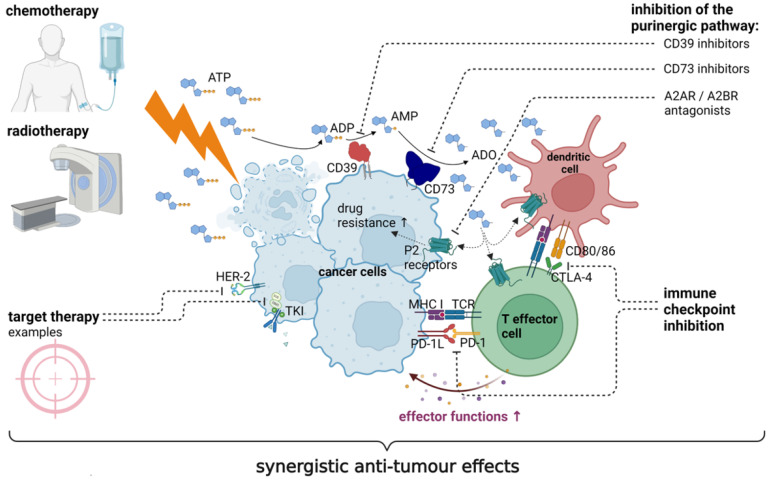Figure 2.
The synergistic anti-tumour effect of combined anti-cancer treatments. The efficacy of many treatments, such as chemotherapy, radiotherapy, target therapy, and immunotherapy relies on the activation of an anti-tumour immune response. The upregulation of CD73 is a resistance mechanism to anti-cancer therapies. While ATP, released from stressed and dying cells, supports the immune activation, adenosine, generated by CD73 catalytic activity, dampens the activity of immune cells, and triggers several drug resistance pathways in tumour cells. Combining blockers of the purinergic pathway (CD39 or CD73 inhibitors, A2AR or A2BR antagonists) or the combination of CD73 inhibition with other treatments (immune checkpoint inhibition, chemotherapy, radiotherapy, target therapy) causes synergistic anti-tumour effects, for example by promoting immune effector functions. ↑: increased. Solid arrow: gets degraded/dephosphorylated. Dashed arrow: inhibits. Created with BioRender.com.

